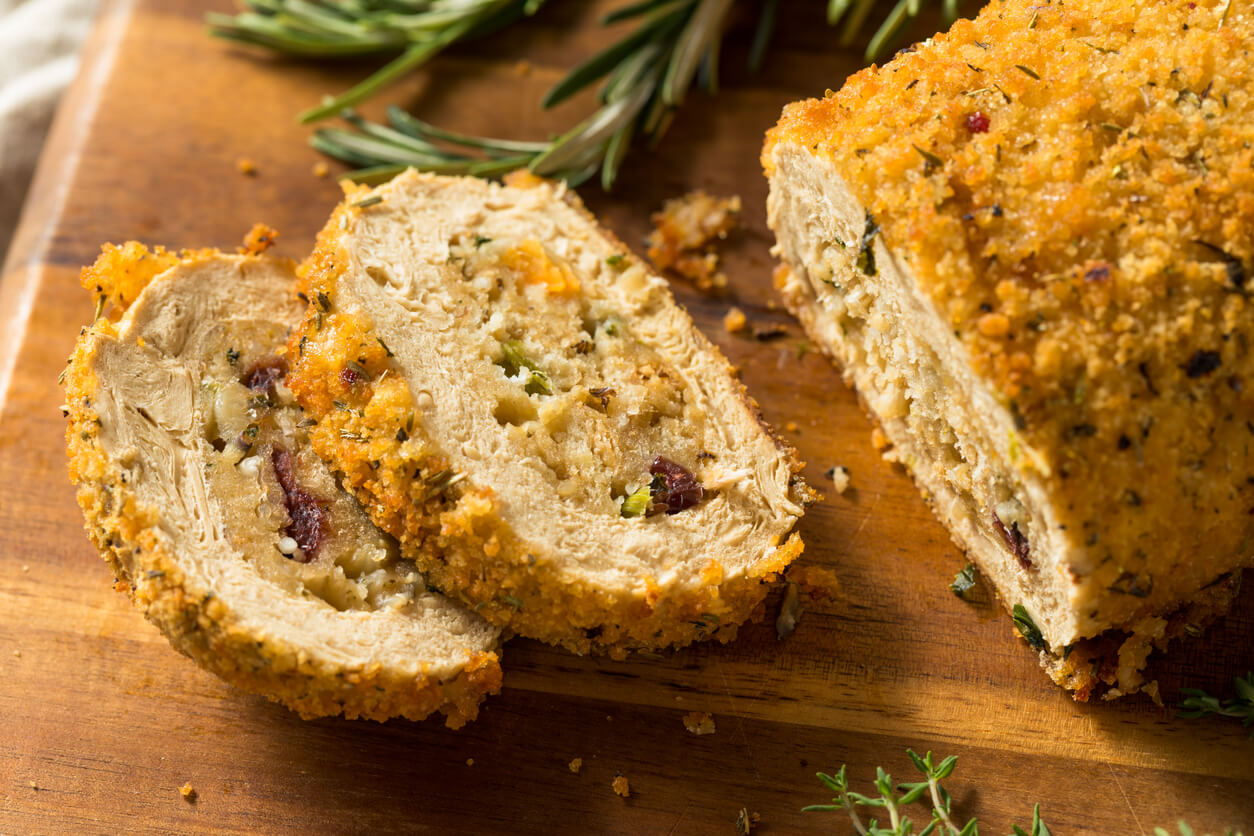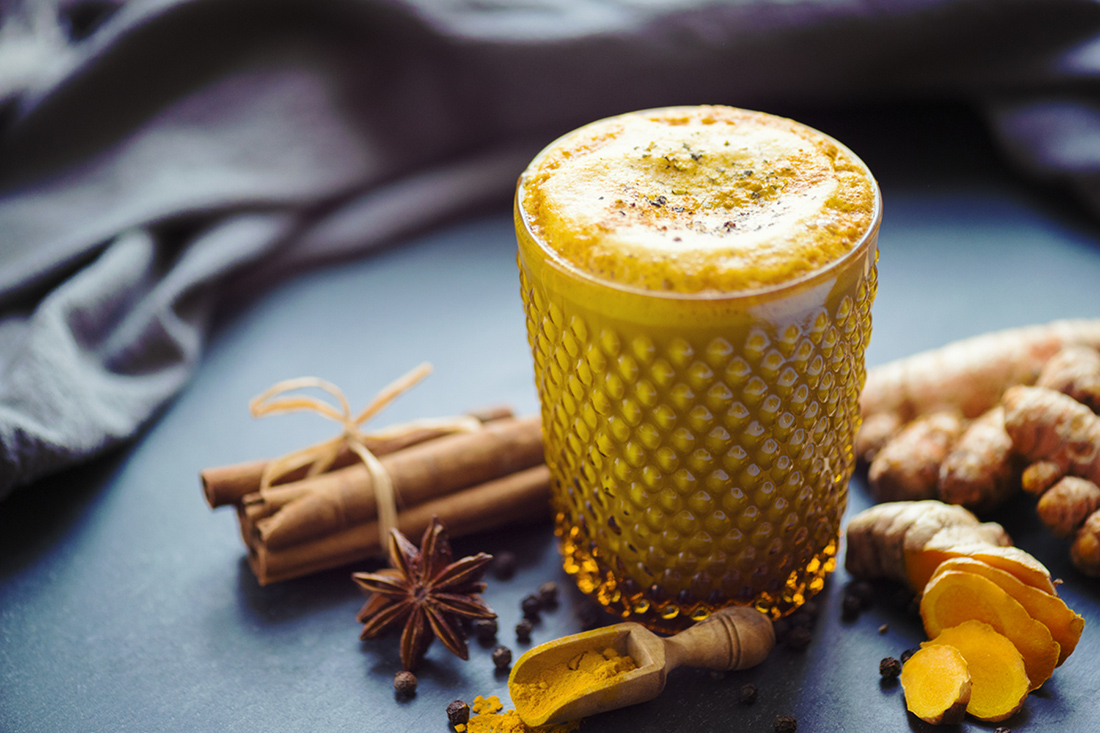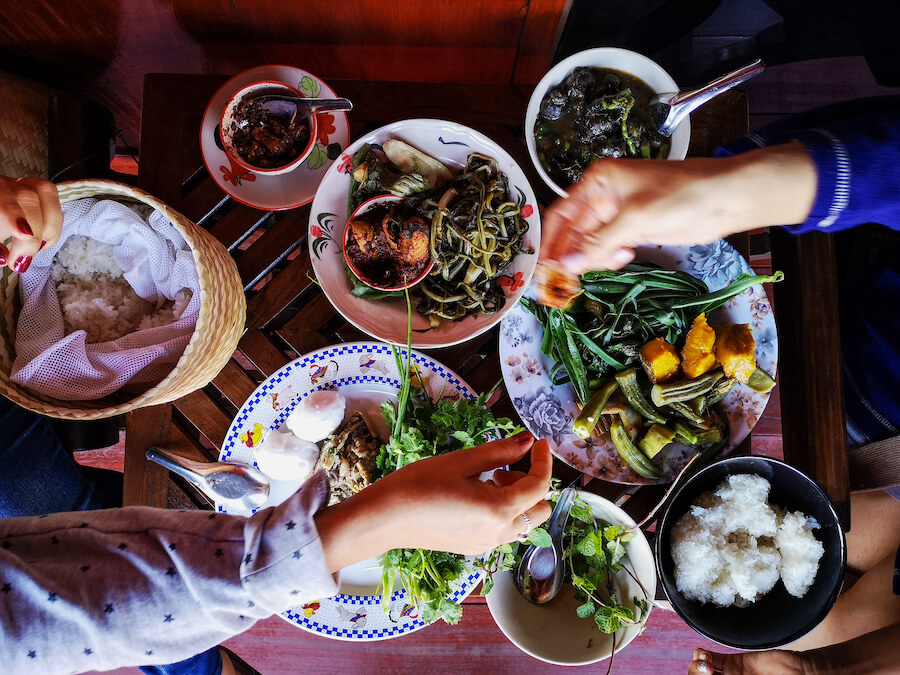
Thanksgiving is the quintessential American holiday for food. On the fourth Thursday of November, people across the country sit down at the “good dining table” (or the broken folding table for the kids) and eat the same thing — copious amounts of turkey.
Vegans and vegetarians may find this holiday to be a more difficult one. An entire day centered around the consumption of meat can be awkward if you have sworn off eating it, so what can a person on a plant-based diet eat on Thanksgiving without missing out on the holiday fun?
Companies like Tofurky have come up with some creative solutions to this issue. Founded in 1980 by “teacher/naturalist/hippie” Seth Tibbott, the company debuted their first Holiday Roast 15 years later. Now, the company boasts two options for a plant-based holiday feast: the original Tofurky roast and a plant-based ham roast with an amber ale glaze.
With a similar taste to turkey, Tofurky has more protein per serving than regular turkey, ensuring that the consumer is not missing out on nutrients found in meat. While the U.S. Department of Agriculture reports that a 100 gram serving of roasted turkey contains 28.6 grams of protein, a serving of Tofurky roast contains 34 grams of protein.
Where does the protein come from? The Tofurky roast gets most of its protein from the main two ingredients of the dish: wheat and tofu. Tofu, made from soybeans, is a “high protein, low-fat soy product” that usually comes in the form of solid blocks.
However, plant-based diets are not monopolized by tofu, wheat and soy. Shruti Sharma, a research investigator in protein solutions for International Flavors and Fragrances and recent doctoral graduate of the University of Georgia Department of Food Science and Technology, is working to find sources of plant-based protein in other places, like peas, rice and oats.
.png)
“Right now, you would want to use soy protein for every single thing that you want to go and try. The reason for that is it's not only available in abundance at a relatively affordable price … But we understand so much about soy that it's easy to work around challenges or troubleshoot when trying to make a turkey experience,” said Sharma, who graduated from the College of Agricultural and Environmental Sciences in August. “But you also know that soy is an allergen, so you don't want to miss out on the population or consumers that cannot consume soy.”
One of Sharma’s main roles is to test the functionality and behaviors of these alternative proteins. “Our real goal to build this kind of protein product is to actually create the protein in a way that it fits almost all the requirements for creating a turkey, in a sense,” she explained. “We're creating this kind of protein ingredient to really help perform the way it is doing in a real turkey.”
This field of work is a familiar one to Sharma. While a doctoral candidate at UGA, she studied food protein function and performance using a non-thermal processing technique called cold plasma with her advisor, Professor Rakesh Singh.
Sharma stressed that affordability is just as important as functionality in her research with alternative proteins. If she and her team start with expensive ingredients, the final product will only be more expensive. Finding the balance between inexpensive raw materials that have the same nutritional qualities as meat or dairy proteins and that still taste like the real thing is difficult, but with industry collaboration and continued research, she sees their success as “only a matter of time.”
While waiting for the promising new proteins on the way, there are many vegan and vegetarian-friendly foods that are perfect for the holidays. Whether you’re feeding guests with different tastes or are curious to try it yourself, alternative proteins offer the chance to keep tradition and nutrition without including meat.






